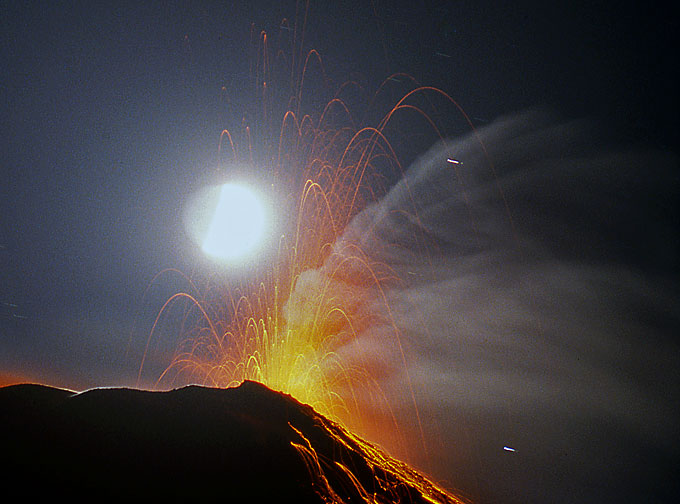Difference between revisions of "June 16, 2008"
| Line 20: | Line 20: | ||
<br /> | <br /> | ||
<br /> | <br /> | ||
| − | <!-- Removed reference to store page --> | + | <!-- Removed reference to store page 2 --> |
<p><b>Yesterday's LPOD:</b> [[June 15, 2008|More Sleep?]] </p> | <p><b>Yesterday's LPOD:</b> [[June 15, 2008|More Sleep?]] </p> | ||
<p><b>Tomorrow's LPOD:</b> [[June 17, 2008|Hundred Year Old Hevel]] </p> | <p><b>Tomorrow's LPOD:</b> [[June 17, 2008|Hundred Year Old Hevel]] </p> | ||
<!-- End of content --> | <!-- End of content --> | ||
{{wiki/ArticleFooter}} | {{wiki/ArticleFooter}} | ||
Latest revision as of 00:18, 9 February 2015
A Lunar Process

image by Jüerg Alean and Marco Fulle
For perhaps three and a half billion years volcanic eruptions created lava flows, pyroclastic deposits, pits, hills and domes on the Moon. The same process continues to operate on Earth, most reliably visible at Stromboli volcano which has erupted continuously for hundreds or perhaps thousands of years. The eruptions are generally weak pyroclastic ones with small boulders, stones and ash falling in ballistic trajectories around the summit; occasionally lava flows down slope to the sea. Deposits from lunar eruptions this small probably would not be detected from Earth. One feature seen here didn't occur on the Moon- the blowing of volcanic steam downwind. The time exposure trailed a few stars, bloomed the illuminated portion of the Moon, and revealed Earthshine. Thanks, Jüerg, for this remarkable picture!
Chuck Wood
Technical Details
October 10, 2005. 200 mm tele photo lens at f2.8 on 200 ASA film, exposure less than 20 seconds.
Related Links
Stromboli Online
Yesterday's LPOD: More Sleep?
Tomorrow's LPOD: Hundred Year Old Hevel
COMMENTS?
Register, Log in, and join in the comments.



